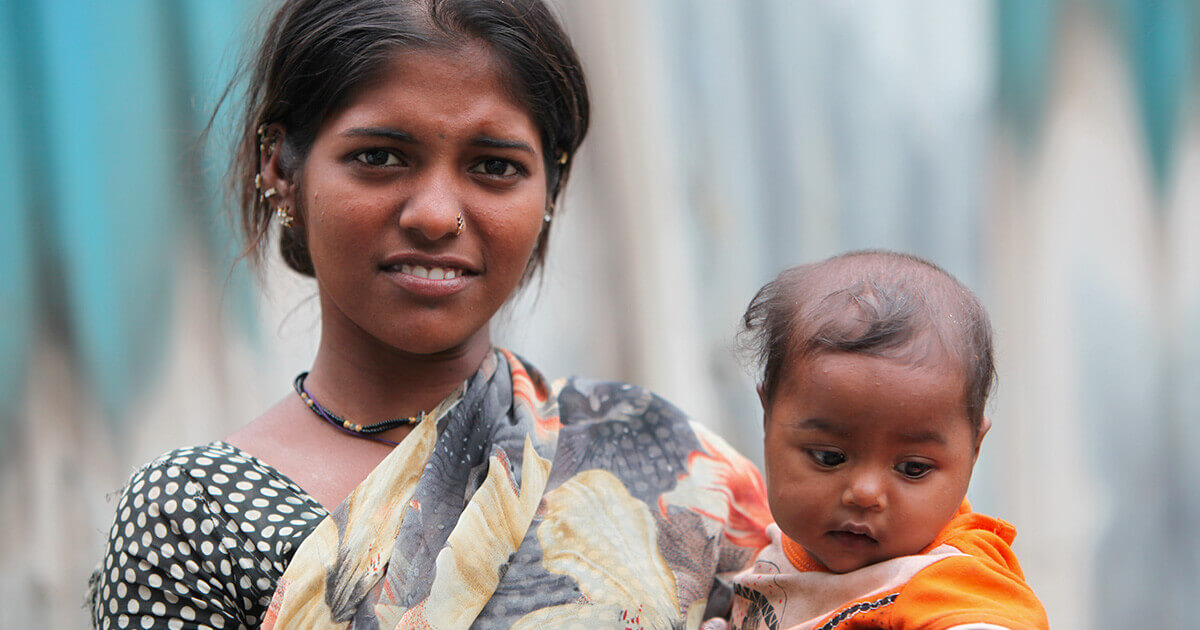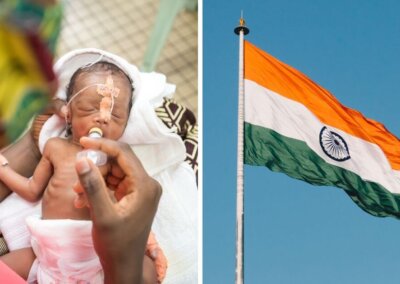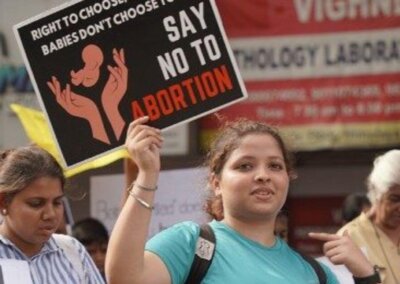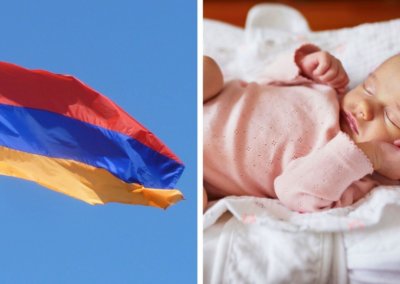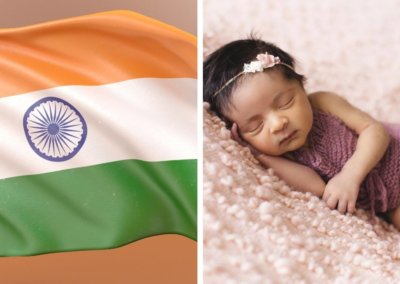A new global modelling of birth rates has estimated that 22 million girls could be ‘missing’ from the global population by 2100.
The report, published by leading medical journal ‘BMJ Global Health’, used over three billion birth records from 204 countries.
A previous publication by the same researchers estimated that the total number of missing female births between 1970 and 2017 was 45 million – 95 per cent of which were ‘missing’ from China or India﹘at least half of which were due to the advance of scans that reveal the sex of the fetus, which make prenatal sex-selective abortions possible.
Researchers also warned of the unknown social and economic impacts on affected countries.
The authors observe that the bias in favour of male children is “a symptom of entrenched gender inequality, which harms whole societies”.
Lead author Dr Fengqing Chao called for “broader legal frameworks” to establish gender equality.
A 2020 report published by the United Nations Population Fund noted that: “The preference for sons over daughters may be so pronounced in some societies that couples will go to great lengths to avoid giving birth to a girl or will fail to care for the health and well-being of a daughter they already have in favour of their son”.
Sex-selective abortions are also identified as one of the key harmful practices targeted under the UN’s Sustainable Development Goals.
Negative impacts on long-term stability and social sustainable development
Countries that already have gender imbalance will be set to ‘lose’ another 4.7 million girls who would have otherwise been born by 2030. They predicted that this figure could reach 22.1 million by 2100.
The results found that Pakistan, Nigeria, and several other sub-Saharan countries, were expected to have a skewed sex ratio in the coming years – however, this trend was forecasted to plateau and then decline in around twenty years in these specific locations.
The data also included records from countries, such as China and India, which already have significant uneven birth sex ratios.
An increasingly male-biased sex ratio could result in a “marriage squeeze” in which a sizeable number of men cannot marry or have children, as there are not enough women for them to partner with.
Dr Chao also wrote: ”Fewer than expected females in a population could result in elevated levels of antisocial behaviour and violence, and may ultimately affect long-term stability and social sustainable development”.
Sex-selective abortion: a global crisis
Sex-selective abortion is a well-documented issue around the world, resulting in highly skewed sex ratios. Since amending its abortion law in 1998, sex-selective abortions have become a major issue in Canada.
An article in the Canadian Medical Association Journal describes how “[e]asy access to abortion and advances in prenatal sex determination have combined to make Canada a haven for parents who would terminate female fetuses in favour of having sons”.
Similarly, evidence of sex-selective abortions has been found in the Australian territory of Victoria, which introduced abortion on request in 2008.
China’s “One Child Policy”, which was officially eased in 2015, permitted coerced sterilisation and abortion. Traditional values that favoured male children led to the mass abandonment or infanticide of female babies. Hundreds of millions of forced abortions were performed, sometimes at over eight months gestation. China consequently boasts the world’s most uneven sex ratio at birth of around 114 males born for every 100 females.
Sex-selective abortion in the UK
A 2014 investigation by The Independent found that “in two-child families of some first-generation immigrants, having elder daughters significantly increases the chances of the second child being male – an imbalance in the sex ratio that should not occur naturally”. It went on to suggest that this could be due to sex-selective abortions.
A BBC investigation published in September 2018 revealed evidence that the new NIPT (non-invasive prenatal testing) provision was being used on a widespread basis to determine the sex of babies, with women discussing how they were under intense pressure to undergo sex-selective abortions.
There is also a body of first-hand testimonies from UK-resident women who say that they have come under intense pressure from family members to have sex-selective abortions and have gone on to obtain these abortions in the UK.
A report from the Nuffield Council on Bioethics, a Government advisory body, found a number of websites offering baby gender tests for around £170. In that report, the Council warned that the increasingly widespread use of the tests in the UK could lead to the country becoming a haven for sex-selective abortions.
An investigation by the Telegraph revealed that doctors were agreeing to provide sex-selective abortions ‘no questions asked’.
Independent polling undertaken by Savanta ComRes shows that 89% of the general population and 91% of women agree that gender-selective abortion should be explicitly banned by the law.
Jeena International, a charity supporting women from ethnic minority communities in the UK, said some women were forced into abortions because they became pregnant with a girl for a second or third time. The charity’s founder, Rani Bilkhu, said, “They don’t want to be homeless, they don’t want their marriage to fail – all because they couldn’t give birth to a boy”.
A spokesperson for Right To Life UK, Catherine Robinson, said: “It is a tragedy that in such a self-professed age of progress, so many countries refuse to outlaw abortion based on the sex of the child in the womb, and even in countries such as India where the practice is technically outlawed, it remains a huge cultural issue. We must take action to foster a global climate in which all babies are valued for their inherent dignity as living human beings, and not one in which they are unfairly treated as a burden, or risk global and societal chaos”.


